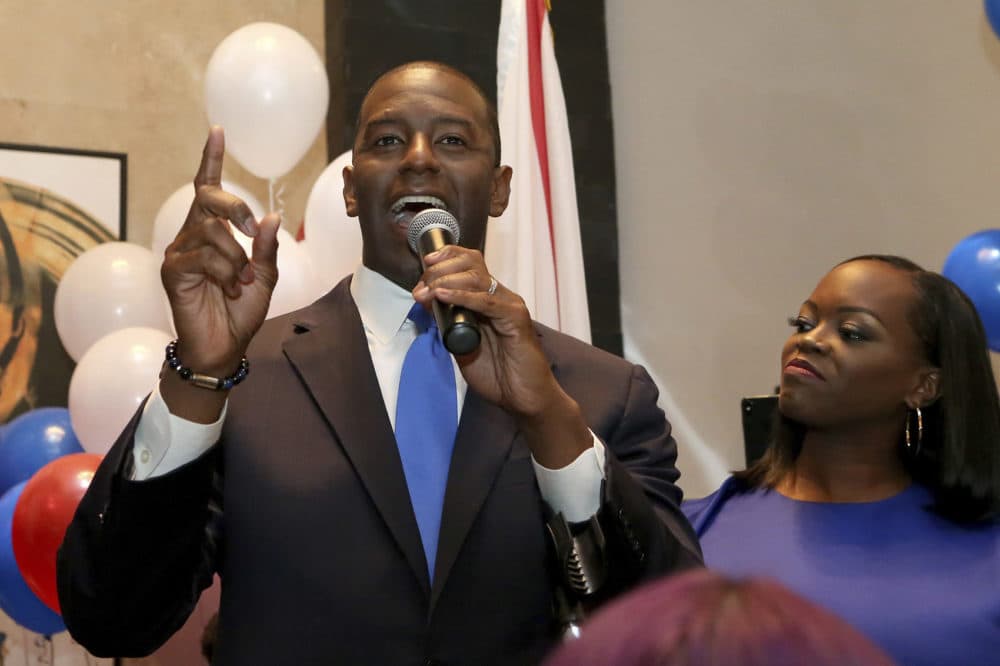Advertisement
Commentary
What Should Democrats Learn From Progressive Victories? Run On Hope

Whenever you bring up the subject of millennial voters in America, the question you often run into is, “Why don’t they vote?”
As an author covering this subject, I usually get this question from liberal baby boomers, but sometimes I’ll hear it from upper middle class young professionals, too. In both cases, the question is almost always expressed in an incredulous tone.
But these days, I’m not hearing that question nearly as much. Because more millennials are voting now, and they’re voting because something in U.S. politics has changed since 2016. America is undergoing a tectonic plate shift that’s elevating more young progressive candidates of color than ever before.
We saw this happen in several races in Boston in last week’s primary elections. Ayanna Pressley won her primary against Rep. Mike Capuano, without accepting PAC money. Nika Elugardo ran to the left of the chair of the Massachusetts House ways and means committee, Jeff Sanchez — who helped torpedo the Safe Communities Act — and she unseated him. Most notably, Rachael Rollins — chief legal counsel of the MBTA and MassDOT — earned the Democratic Party’s nomination for District Attorney of Suffolk County after running on a platform that included ending cash bail and mass incarceration.

One of the most remarkable factors in these primary upsets was the way candidates like Rollins, Elugardo and Pressley managed to excite and engage broad swaths of voters who don’t always participate in midterm elections: including the young. The Boston neighborhoods of Jamaica Plain, Roxbury and Dorchester — which includes representative territory for Pressley and Elugardo — registered some of the highest turnout rates in the primary. Where most Boston communities experienced voter turnout of less than 30 percent, these three neighborhoods saw greater participation. "Greater than 30 percent" might not sound that impressive, but for a midterm election, it's a big deal.
A similar uptick in turnout was observed in Massachusetts' 3rd district, where State Rep. Juana Matias managed to clinch third place in a crowded race for retiring Rep. Niki Tsongas’s U.S. House seat. Matias had trailed behind her competitors in polls, but her base in the Lawrence area came out in droves — far more than they did in 2016 — and Matias soared past projected frontrunners, including Barbara L’Italien and Rufus Gifford. That she managed to get within striking distance of Lori Trahan and Dan Koh (the top two vote getters), who both had more access to money and establishment support than Matias did, is nothing short of remarkable.
Some pundits explain the ascendency of candidates including Pressley, New York’s Alexandria Ocascio-Cortez, Georgia’s Stacey Abrams and Florida’s Andrew Gillum on voters’ hunger for representation in politics; the desire to see a mirror image of themselves in Congress or the state house.
But the representation story, while powerful, doesn’t fully capture the promise that candidates like these women and men offer to voters who’ve felt ignored by powerful incumbents and the establishment.
Pressley may have worked for Sen. John Kerry for 15 years, but her campaign’s slogan — “Change Can’t Wait”-- is a direct rebuttal to the refrain that the underrepresented are used to hearing when they ask their elected officials to treat their concerns with urgency. Whether the concern at hand is racism in law enforcement, the cost of healthcare or the fact that most of Washington, D.C. is still white, male and old, the idea that these things can be changed at all (let alone quickly) is almost always shot down as fanciful thinking.
Decades of rule by a political elite who have embraced consensus technocracy and walked away from big, inspiring ideas such as transitioning away from fossil fuels and giving everyone quality healthcare is why voter turnout — especially youth voter turnout — has been so low until recently. The sentiment that I've heard from more millennials than I can count is that voting is pointless because ultimately, nothing will change. The powerful will do what they want, and the rest of us will just be living in their world.
What today’s new wave of progressive candidates of color are bringing back into focus for voters is the idea that another world is possible. They’re bringing back hope itself.
... more Millennials are voting now, and they’re voting because something in U.S. politics has changed since 2016.
In Delaware, Air Force veteran and community organizer Kerri Harris -- a candidate for the U.S. Senate — perfectly summed up this sentiment in one blunt sentence in her campaign video:
“The most important thing to me … is injecting hope back into people.”
Harris, a leftist Democrat, spent this past year running against the moderate incumbent, Sen. Tom Carper. Her platform includes an indexed $15 minimum wage, Medicare For All, abolishing ICE and creating “a Green New Deal.”
All of these things have been dismissed as wishful thinking by plenty of entrenched Democratic leaders, most of them white and wealthy. A woman of color with working class roots and bold ideas for bringing equity back to marginalized communities, Harris appeared to run her campaign with the understanding that voters are looking for someone who can persuade them to imagine the future again. Like America’s last president did.
Hope took down the Bush administration in 2008. Now hope is turning inward and leaving no incumbent unscrutinized, no matter their party affiliation.
Another world is possible, and we’re getting closer to it.
